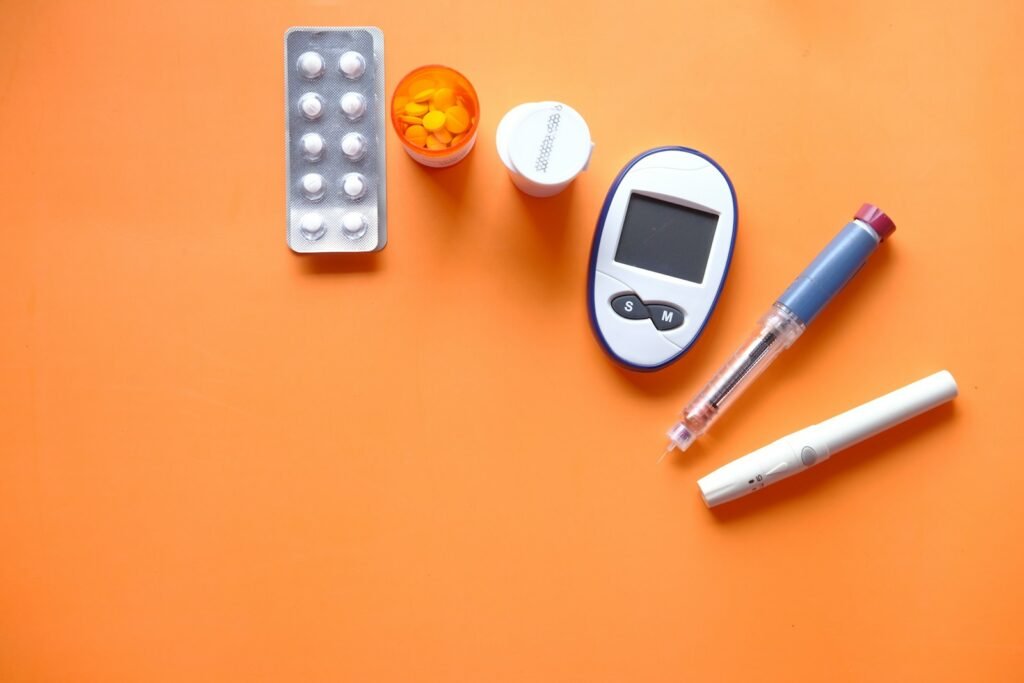Table of Contents
- Introduction to Diabetes
- Types of Diabetes
- Risk Factors for Diabetes
- Managing Diabetes Through Diet
- Exercise and Diabetes Management
- Medications for Diabetes Management
- The Role of Weight Loss in Diabetes Remission
- Bariatric Surgery and Diabetes Remission
- Additional Resources and Further Reading
- Practical Tips and Actionable Advice
- Conclusion
Introduction to Diabetes
Diabetes is a chronic metabolic disorder characterized by elevated blood sugar levels (hyperglycemia) due to the body’s inability to produce or effectively use insulin, a hormone responsible for regulating blood glucose. According to the International Diabetes Federation, approximately 537 million adults worldwide were living with diabetes in 2021, and this number is projected to rise to 783 million by 2045.
Uncontrolled diabetes can lead to severe complications, including cardiovascular disease, nerve damage (neuropathy), kidney disease (nephropathy), and vision problems (retinopathy). Proper management of diabetes is crucial to prevent or delay these complications and improve overall quality of life.
Types of Diabetes
There are three main types of diabetes:
- Type 1 Diabetes: An autoimmune condition where the body’s immune system attacks and destroys the insulin-producing beta cells in the pancreas. Individuals with type 1 diabetes require daily insulin injections or an insulin pump to regulate their blood sugar levels.
- Type 2 Diabetes: The most common form of diabetes, accounting for approximately 90-95% of all cases. It occurs when the body becomes resistant to insulin or fails to produce enough insulin to maintain normal blood sugar levels. Type 2 diabetes is often associated with lifestyle factors such as obesity, poor diet, and lack of physical activity.
- Gestational Diabetes: A form of diabetes that develops during pregnancy due to hormonal changes and increased insulin resistance. It typically resolves after giving birth, but women who have had gestational diabetes are at a higher risk of developing type 2 diabetes later in life.
Risk Factors for Diabetes
Several factors can increase an individual’s risk of developing diabetes, including:
- Family history of diabetes
- Obesity or being overweight
- Increasing age
- Sedentary lifestyle
- Ethnicity (higher risk for certain ethnic groups)
- Polycystic ovary syndrome (PCOS)
- High blood pressure
- Abnormal cholesterol levels
Managing Diabetes Through Diet
Adopting a healthy, balanced diet is a crucial component of managing diabetes and reducing the risk of complications. Here are some dietary strategies that can help control blood sugar levels:
- Low-Carbohydrate Diets: Limiting carbohydrate intake, particularly from sources with a high glycemic index (foods that cause rapid spikes in blood sugar), can help improve blood sugar control and reduce the need for medication or insulin.
- Plant-Based Diets: Evidence suggests that plant-based diets rich in whole, unprocessed foods can be highly effective for managing type 2 diabetes. These diets are typically high in fiber, antioxidants, and other beneficial compounds that improve insulin sensitivity and reduce inflammation.
- Mediterranean Diet: The Mediterranean diet, which emphasizes vegetables, fruits, whole grains, lean proteins, and healthy fats like olive oil, has been associated with better blood sugar control and a reduced risk of developing type 2 diabetes.
- Portion Control and Mindful Eating: Paying attention to portion sizes and practicing mindful eating habits can help prevent overeating and excessive calorie intake, both of which can contribute to weight gain and exacerbate insulin resistance.
- Hydration and Fiber Intake: Staying hydrated and consuming adequate amounts of fiber can aid in digestion, promote feelings of fullness, and support overall blood sugar regulation.
Exercise and Diabetes Management
Regular physical activity is an essential component of diabetes management, as it can improve insulin sensitivity, lower blood sugar levels, and promote weight management. Here are some exercise strategies that can benefit individuals with diabetes:
- Aerobic Exercise: Engage in moderate-intensity aerobic activities, such as brisk walking, swimming, or cycling, for at least 150 minutes per week. Aerobic exercise can help lower blood sugar levels and improve cardiovascular health.
- Resistance Training: Incorporate resistance training exercises, like weightlifting or bodyweight exercises, into your routine. Building muscle mass can increase insulin sensitivity and improve glucose metabolism.
- High-Intensity Interval Training (HIIT): HIIT involves alternating periods of intense exercise with periods of recovery or low-intensity exercise. This type of training has been shown to improve insulin sensitivity and glucose control in individuals with diabetes.
- Mind-Body Exercises: Practices like yoga, tai chi, and qigong can help reduce stress, which can be a significant contributor to blood sugar fluctuations. These activities also promote flexibility and overall well-being.
It’s essential to consult with a healthcare professional or certified fitness trainer to develop an exercise program tailored to your individual needs and abilities, especially if you have any existing complications or limitations.
Herbs and Foods for Diabetes Management
Herbs:
- Cinnamon: May improve insulin sensitivity and lower blood sugar levels.
- Fenugreek: Seeds contain fiber and other chemicals that may slow digestion and absorption of carbohydrates.
- Bitter Melon: Contains compounds that act like insulin and help reduce blood sugar levels.
- Aloe Vera: May help lower blood glucose levels.
- Ginger: Can improve insulin sensitivity and lower blood sugar levels.
- Berberine: An active component in several plants that has been shown to lower blood glucose and improve lipid metabolism.
- Turmeric: Contains curcumin, which can reduce blood sugar and inflammation.
- Gymnema Sylvestre: May reduce sugar absorption in the intestines and improve insulin levels.
- Holy Basil: Can reduce blood sugar and oxidative stress.
- Milk Thistle: Contains silymarin, which may help manage diabetes complications.
Foods:
- Leafy Greens: Low in calories and carbohydrates, high in nutrients and fiber.
- Berries: High in antioxidants, vitamins, and fiber.
- Nuts: Contain healthy fats, protein, and fiber that help control blood sugar levels.
- Fatty Fish: Rich in omega-3 fatty acids, which reduce inflammation and improve heart health.
- Whole Grains: Such as oats, quinoa, and barley, which have a low glycemic index and are high in fiber.
- Beans: High in fiber and protein, which can help manage blood sugar levels.
- Greek Yogurt: High in protein and probiotics, which can improve blood sugar control.
- Chia Seeds: High in fiber, omega-3 fatty acids, and antioxidants.
- Flaxseeds: Rich in fiber and omega-3 fatty acids, which can help manage blood sugar levels.
- Garlic: May reduce blood sugar levels and improve insulin sensitivity.
- Avocados: Contain healthy fats and fiber, which can help manage blood sugar levels.
- Sweet Potatoes: Have a lower glycemic index than regular potatoes and are high in fiber and vitamins.
- Tomatoes: Low in carbohydrates and high in vitamins and antioxidants.
- Broccoli: Contains sulforaphane, which may improve blood sugar control and reduce inflammation.
- Citrus Fruits: Such as oranges, lemons, and grapefruits, which are high in fiber and vitamin C.
The Role of Weight Loss in Diabetes Remission
For individuals with type 2 diabetes, significant weight loss has been associated with improved insulin sensitivity and, in some cases, remission of the condition. Remission refers to a state where blood sugar levels return to normal ranges without the need for medication or insulin therapy.
Several studies have shown that individuals who achieve and maintain substantial weight loss (typically around 15% of their initial body weight) through lifestyle modifications or bariatric surgery have a higher likelihood of achieving diabetes remission.
The mechanisms behind this phenomenon are not fully understood, but it is believed that weight loss can lead to a reduction in fat accumulation in the liver and pancreas, improved insulin sensitivity, and potentially, the regeneration or recovery of insulin-producing beta cells in the pancreas.
However, it’s important to note that remission is not a permanent cure, and individuals who achieve remission still need to maintain a healthy lifestyle and regular monitoring to prevent a recurrence of diabetes.
Bariatric Surgery and Diabetes Remission
For individuals with obesity and type 2 diabetes who have struggled to achieve significant weight loss through lifestyle changes alone, bariatric surgery (weight-loss surgery) may be an option to consider.
Procedures like gastric bypass, sleeve gastrectomy, and gastric banding can lead to substantial weight loss and have been shown to improve or even resolve type 2 diabetes in many cases. The exact mechanisms behind this are not fully understood, but it is believed that the changes in gut hormones and metabolic pathways following bariatric surgery play a significant role.
While bariatric surgery can be an effective option for some individuals, it is important to carefully consider the potential risks and benefits, as well as the long-term lifestyle changes required to maintain the results. Bariatric surgery should be performed by experienced surgeons, and patients should receive comprehensive pre-operative and post-operative care, including counseling, nutritional guidance, and regular follow-up.
It’s worth noting that not all individuals who undergo bariatric surgery will achieve diabetes remission, and some may experience a recurrence of the condition over time. Factors such as the duration of diabetes, the degree of insulin resistance, and the individual’s ability to maintain a healthy lifestyle after surgery can influence the long-term outcomes.

Additional Resources and Further Reading
If you’d like to learn more about managing and potentially curing diabetes, here are some additional resources:
- Books:
- “The Diabetes Code” by Dr. Jason Fung
- “The Diabetes Solution” by Dr. Richard K. Bernstein
- “The End of Diabetes” by Dr. Joel Fuhrman
- Articles:
- Can We Really Reverse Type 2 Diabetes? (Healthline)
- Weight Loss and Remission of Type 2 Diabetes (Diabetes UK)
- Websites:
- Research Studies:
- Effect of a Low-Calorie Diet on Remission of Type 2 Diabetes (JAMA Network)
- Bariatric Surgery and Remission of Type 2 Diabetes (PubMed Central)
Practical Tips and Actionable Advice
Here are some practical tips and actionable advice for managing diabetes and potentially achieving remission:
- Embrace a Healthy Diet: Adopt a balanced, nutrient-dense diet that emphasizes whole, unprocessed foods. Focus on low-glycemic index carbohydrates, lean proteins, healthy fats, and plenty of fiber-rich fruits and vegetables.
- Engage in Regular Exercise: Incorporate a combination of aerobic exercise, resistance training, and activities that promote flexibility and stress relief into your routine. Aim for at least 150 minutes of moderate-intensity exercise per week.
- Monitor Blood Sugar Levels: Regularly check your blood sugar levels to understand how your body responds to different foods, activities, and medications. This will help you make informed decisions about your diabetes management plan.
- Seek Professional Support: Work closely with a healthcare team, including a certified diabetes educator, registered dietitian, and other specialists, to develop a personalized treatment plan and receive guidance on medication management, lifestyle modifications, and ongoing support.
- Manage Stress: Chronic stress can exacerbate diabetes and make it more challenging to manage blood sugar levels. Incorporate stress-reducing activities like meditation, deep breathing exercises, or yoga into your routine.
- Stay Consistent: Consistency is key when it comes to managing diabetes. Stick to your dietary and exercise plans, take medications as prescribed, and attend regular check-ups with your healthcare team.
- Consider Weight Loss Strategies: If you are overweight or obese, explore safe and sustainable weight loss strategies, such as a calorie-controlled diet, increased physical activity, or bariatric surgery (if eligible and recommended by your healthcare provider).
- Stay Informed: Educate yourself about the latest research, treatment options, and lifestyle strategies for managing diabetes. Attend support groups, read reputable sources, and stay up-to-date on new developments in the field.
Conclusion
Managing diabetes is a lifelong journey that requires commitment, perseverance, and a comprehensive approach. While there is currently no definitive cure for diabetes, effective management through lifestyle modifications, medication (if necessary), and regular monitoring can significantly reduce the risk of complications and improve overall health outcomes.
For individuals with type 2 diabetes, achieving and maintaining substantial weight loss through dietary changes, exercise, and, in some cases, bariatric surgery can potentially lead to remission. However, remission is not a permanent cure, and individuals who achieve remission will need to continue practicing a healthy lifestyle to prevent a recurrence of the condition.
Remember, every individual’s journey with diabetes is unique, and what works for one person may not work for another. It’s essential to work closely with your healthcare team, listen to your body, and make adjustments as needed to find the approach that works best for you.
Are you ready to take control of your diabetes and embark on a path towards a healthier, more vibrant life? Start by implementing the practical tips and strategies outlined in this article, and never lose sight of your goals. With determination and the right support, achieving remission or effective management of diabetes is within reach.


Leave a Reply